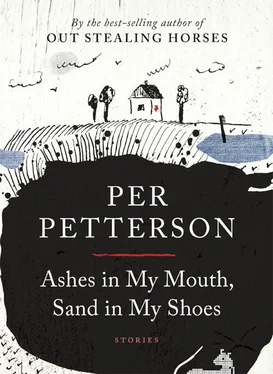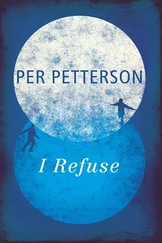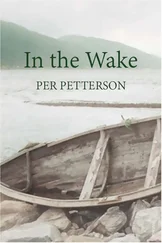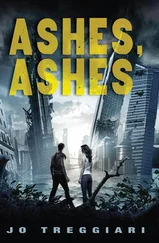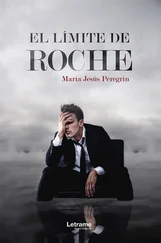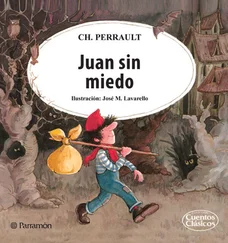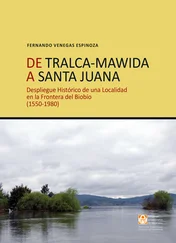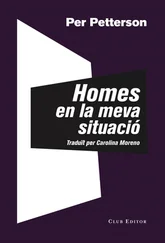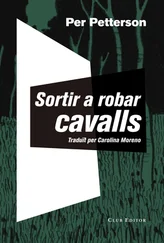Dad put down the basket in the middle of the living-room floor and then he threw the lasts, one after the other, into the old black Jøtul stove with its lion feet, and they burned well with an intense red flame.
‘That’s it, Arvid,’ Dad said with an ugly laugh and his face looked just like a rock. ‘Now I’m a man without shoes!’
‘I know,’ Arvid said. ‘Now you’re a man with toothbrushes!’
And even though he was only one metre fifteen tall and pretty slight, his voice was so heavy with scorn that at first his dad stared at him and then went into the kitchen, and he slammed the door after him.
The floor is cold to his bare feet. He can feel the cracks between the boards, and he tries to avoid even touching the floor. He takes his bearings from the dim light he knows must come from the half-open toilet door. Once there, he pulls down his underpants and pees, he’s asleep, he dreams of a red bike racing across the shiny tarmac in Veitvetsvingen and the world around him explodes into green and blue and yellow. Then he walks back to his room like a little ghost in white pants, and his mother, who is watching him, does not know if she should wake him, or if she should laugh or cry. She does neither and, resigned, she fetches a wet cloth from the bathroom and wipes the floor for the fourth time this week, thinking it was a bad idea to leave the lamp on in the hall at night. The varnish cannot take much more.
Arvid is sleeping. Arvid is dreaming. He dreams he is falling through endless pipes, pipes that get darker and darker and resound with hollow echoes when he shouts all he can, but the echo fades and dies, and when he wakes he is screaming stifled screams into his duvet.
He dreams about animals with sharp teeth and long tails holding his body in a fierce grip, and when he wakes the duvet is wrapped tightly round his chest and he is staring into the dark with wide-open eyes. And then the duvet comes alive in his hands as he tries to untangle it from his body, and it coils and twists and he shouts:
‘Mum! Dad! There are snakes in my bed!’
‘No — there are — not.’ His mother’s drowsy voice hauls itself up from sleep in the next room.
‘But there are !’
‘Well, come in here then.’
Cautiously he draws his hands to his chest. He barely moves them. It must be done that way so the snakes don’t notice, or else they might get angry and bite him. They have done it before.
A few minutes later he is on the floor. Ahead of him is the pool of light, the open door with its freedom from the darkness. Then there is a sound and he freezes, the grinding of sharp teeth and a rhythmic rustling sound. It is the tail, he can see it, swinging across the rug and it’s rustling, rustling. He can see its eyes too, like two balls of fire burning his face.
‘Mum! Dad! You’ve got to help me. There’s a crocodile on the floor. I can’t get past!’
‘Nonsense. Come on now!’
‘I can’t! It will eat me up!’
A bed is creaking and then he hears the heavy footsteps across the floor. For a moment Dad fills the doorway and the world goes black. Arvid screams, everything whirls around him, he is dizzy, and he sinks to the floor, and then his dad enters, steps right through the crocodile and it’s gone at once, and Dad grabs Arvid underneath the arms and lifts him up. Arvid falls asleep at once. Dad carries the limp body into the next room and shakes his head at the woman sitting up in the double bed like a question mark.
The following day his body is sluggish, his neck stiff, and it hurts when he moves his head.
He dreams he is flying high up, with a strong wind under his arms. It is wonderful, in his stomach there is a quiver. But when he wants to go down, he cannot, he is too light and then he rises and rises until he is all giddy and sick, and when he wakes he has a stomach virus and has to eat Marie biscuits and drink boiled water for several days.
He dreams that his dad’s blue T-shirt with all the muscles inside it is suddenly empty and flabby and hanging there on a nail in a large empty attic room.
He dreams the house is full of ashes, there are ashes in his mouth and ashes in his pockets, and when he looks at himself in the mirror he has black lines all over his face from his fingers.
When he wakes, it is morning, but he doesn’t feel like getting up even though it is Sunday.
The door opens and Mum enters the room.
‘Hi, Arvid. You have to get up now. It’s ten o’clock and we’re going for a hike, remember?’
He turns to the wall.
‘But Arvid, aren’t you feeling well?’
He tries to see if he is ill, but he is not, he just doesn’t want to get up. He wants to lie there gazing at the wall. There are two holes in the soft wall that his fingers have dug out when he’s been in bed unable to sleep. He looks at the holes and thinks, there are two holes in the wall. I made them.
Mum goes to the window and pulls the curtains open. Light floods the room, for it is ten o’clock and summer.
‘No!’ he yells. Mum closes them and then she goes down the stairs.
‘Frank!’ she calls.
There are two holes in the wall. I made them, Arvid thinks. He raises a hand and runs his fingers around the edges, but he doesn’t have the will to dig. He puts his hands under the pillow.
Dad comes in, the floorboards creak beneath his weight and he sits down on the edge of the bed and touches Arvid’s shoulder.
‘Hi there, chief, turn round so I can see you.’ Arvid turns stiffly, his hands covering his face. Dad lifts him off the bed and holds him tight to his body as he carries him out of the room. Arvid can feel the solid muscles and the cloth of the blue T-shirt.
In the bathroom Dad puts Arvid down on the toilet seat and wraps a large towel around his shoulders. Then he undresses and turns on the shower. When the water is warm enough he lifts Arvid, takes off his underpants and carries him into the shower, holding him close to his chest while Arvid curls up and covers his face. The hot water cascades over their heads and Dad holds Arvid with one hand, washing him with the other, his face, chest, back, between his legs, feet. Arvid starts crying. It doesn’t show because of the falling water, but his dad notices a faint trembling. Then he turns off the shower and places Arvid on a stool in front of the basin, dries him gently and takes his hands away from his face. Arvid looks in the mirror and sees a very clean boy’s face with wet hair and it is his. Dad dries himself and puts on the blue T-shirt, tousles Arvid’s hair and Arvid smiles.
‘Come on, let’s eat,’ Dad says, and all of a sudden there is the wonderful strong aroma of fried bacon.
The day Arvid’s granddad died was a Sunday, and most of the family had gone out to the cabin at the end of the Bunne Fjord. It was a red log cabin at the top of a slope that started gently by the road but then plunged down to the rocks on the shore. If you went up the stone steps and the door was not locked, you came into a narrow hall with three large windows looking out over the fjord. And then there was a sitting room and kitchen in one, but no one ever sat there because it was so dark. Upstairs was only one room with the beds down both sides, or in fact under the angle of the sloping roof, for its ends almost reached the floor. The floor was cold, there was a draught up between the boards, and the whole place reeked of damp wool carpets. If you didn’t walk right in the middle of the floor, you were sure to bang your head and that was precisely what the grown-ups often did, especially at night when they went downstairs and outside for a pee. Even Granddad, who among many things was a Sunday-school teacher, swore blue murder when he hit his forehead on the beams.
Читать дальше
